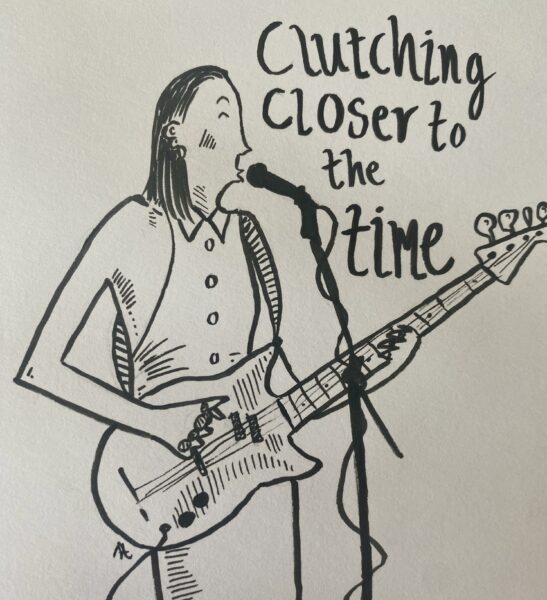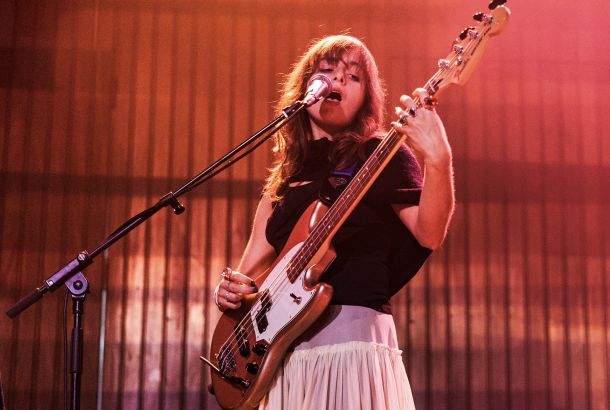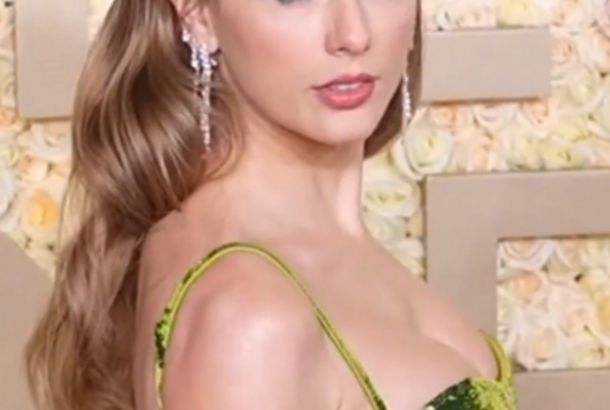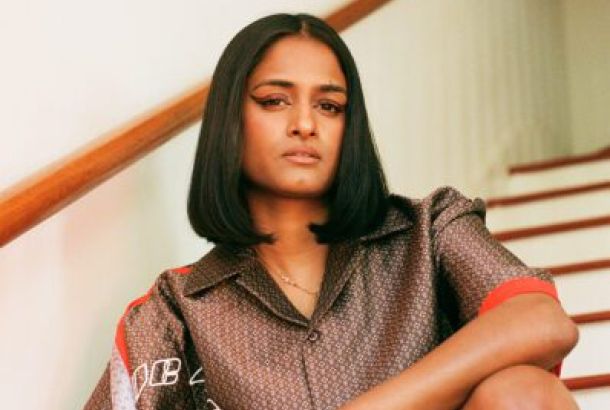Frantic, funky, forever fascinating: The Orielles live at Canvas

Admittedly, The Orielles are a strange band to write about. Their career thus far has been an idiosyncratic one, to say the least. A debut record bursting with sunny, youthful naiveté and adoration for A Certain Ratio, followed by an unexpected remix with the late, great Andrew Weatherall. Next came a frenetic, space-themed concept album (just replace Major Tom or Ziggy Stardust with a cat named Bobbi), and a lucid, Lynchian, self-directed short film amidst a global pandemic.
Now? Tableau: a perplexing, genre-defying third record that is genuinely difficult for listeners and writers alike to categorise. Halifax’s finest, joined with Tara Clerkin Trio, return to Manchester to tour this behemoth of a record that refuses to be pigeonholed, and, as always, put on an inspiring performance for both the eyes and the ears.
With vast, white walls, and a surprising lack of clutter or grime beneath the feet, Canvas feels more akin to an art gallery than a gig venue – which suits eccentric support act Tara Clerkin Trio just fine. Acting more as a sonic art installation than a band, the trio fill the modern architectural space with a bizarre, experimental soundscape, featuring jazz rhythms, dub bass, echoing keyboard lines, improv clarinet solos and an apparent addiction to percussion sampling.
Mixing the key hallmarks of ambient, trip-hop, jazz, prog and trance, Tara Clerkin Trio establish the genre playfulness of The Orielles’ newfound sound/aesthetic rather well. However, if you’re looking for a support act that, as Jeremy Usbourne (Robert Webb) would so eloquently put it, “works it up into a bit of a lather”, you’ll have to look elsewhere. Instead, the trio happily get lost in their layers of sonic texture, content in projecting what feels like their own unique art installation… regardless of how lukewarm the audience’s reaction may or may not be.
Tara Clerkin Trio’s art-house ambience is followed on in similar vain: a Beck-directed short film is projected onto Canvas’ back wall as The Orielles build up their audience’s anticipation. Eisenstein-like in its editing style, blurred and bustling, the footage creates an atmosphere of controlled chaos, illicit meanings and complicated associations. Wholly pretentious, yes, but this is without a doubt a fitting visualisation of Tableau, a piece of music just as peculiar and artistically ambitious. It is a cinematic beginning to the showcase of a cinematic record: “When we’ve talked about being influenced by film, people think we mean directors but it’s not that at all…it’s about trying to make those ebbs, and flows, and creating tension.”
Soviet montage doesn’t just apply to the short film, it also applies to the sound that The Orielles conjure up. The band, usually colourful in their soundscapes, has never sounded so stark, or so metallic. Songs like ‘Television’, owing to the militant, dysfunctional rhythms of Krautrock and post-punk, are brought to life by singer/bassist Esme Dee Hand-Halford’s high-neck strumming (her style of playing never so close to the likes of Peter Hook).
‘Chromo II’ is another barbed highlight, with sparks of the industrial and the alien in its wailing guitars. There are elements here of their original influences, but warped, mutated – as evidenced in the wiry electronica of post-punk-goes-to-the-disco track ‘Airtight’. Marching along with warbling sequencers, drummer Sidonie B Hand-Halford attempts to marry her Happy Mondays-esque grooves with experimental time signatures and an unexpected iciness. The Orielles clearly aren’t content with sticking to old formulas in their discography, or their live show.
Although the new sound may be perhaps disconcerting for long-term devotees of the band, the core trio are still as engrossing as ever to watch, whether the new record is to your taste or not.
As is the case with all successful three-pieces, watching The Orielles live is like watching a well-oiled machine chugging away. Each member is as gifted, and as vital, as the other: Henry Carlisle, sweat-soaked and delirious, plays a Stratocaster as if he were an infuriated, but no less virtuosic, Nile Rodgers. Esme Dee Hand-Halford sings and plays with phenomenal multi-tasking discipline (all whilst being able to cast a nervous glance towards her erratic guitarist whenever he almost knocks into a stack of amplifiers) and Sidonie B Hand-Halford holds the group’s timing down with the most satisfying snare-drum playing in modern indie music.
There remains an illusive, yet potent, chemistry between the trio – it beguiled me when I was 16 and continues to do so. Esme’s Jez Kerr-esque bass acrobatics, perhaps most noticeable in ‘Space Samba (Disco Volador)’ and ‘Bobbi’s Second World’ glide gleefully under her dreamy vocals. As someone who’s played bass whilst singing in groups, I have no choice but to gaze in awe, her glittery eyes only casually glancing down to the fretboard every so often to provide disco grooves for the cosmos. Easy enough, right?

Esme Dee Hand-Halford, lyrics from ‘Airtight’. Photo: Jacob Ainsworth @ The Mancunion
One thing that falls short in The Orielles performance, however, is their choice of setlist. Whilst I respect the whole-hearted devotion to showcasing the new material, it felt like the earlier records, rather than integrated smoothly into the live show, were often outright rejected.
In terms of atmosphere and audience response, it was obvious that Canvas craved a few more of the summery grooves that the trio made their name with. The audience went from a shuffling of feet to a full-on pogo when the bitter-sweet, tempo-changing late-night recollections of ‘Sunflower Seeds’ rang out across the venue: a palpable change in energy, and a glimpse into a show with a more well-rounded setlist. It has to be said: the quirky ditties of sophomore LP Disco Volador felt like a light-hearted respite from the uncompromising ambitions of Tableau. And as for the wide-eyed giddiness of debut Silver Dollar Moment? Completely absent.
Well, I suppose it’s a record from a distant pre-COVID time, written when the band were hardly yet adults. After all, The Orielles have new ground to tread, regardless to what extent their audience are willing to follow them through the wilderness. Tableau live could do with more emotional levity, and yet I can’t help but find the band all the more fascinating for choosing to embrace their futuristic double LP in all its uncompromising experimentation.
Like a Norman Mailer novel, The Orielles never fail to bombard their audiences with new ideas, new styles, new gestures and new perspectives. They’re a true renaissance band in every sense of the word – always moving forward, exploring different mediums and alluding prediction. What’s next for The Orielles? I honestly haven’t the foggiest.







